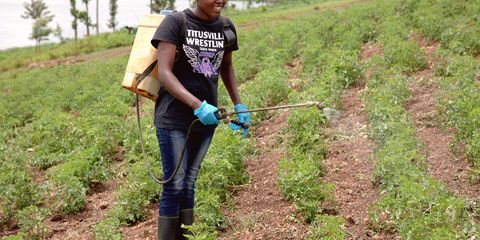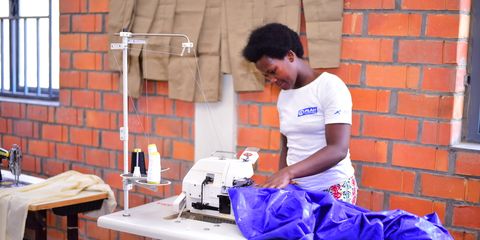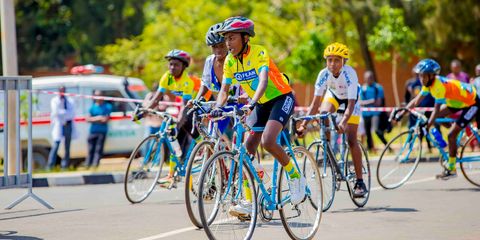Olivia is a determined young woman with dreams as vast as the open road. At just 20, she is not only honing her skills in bicycle mechanics, but also setting her sights on the upcoming World Cycling Championship in Rwanda, dated for 2025.
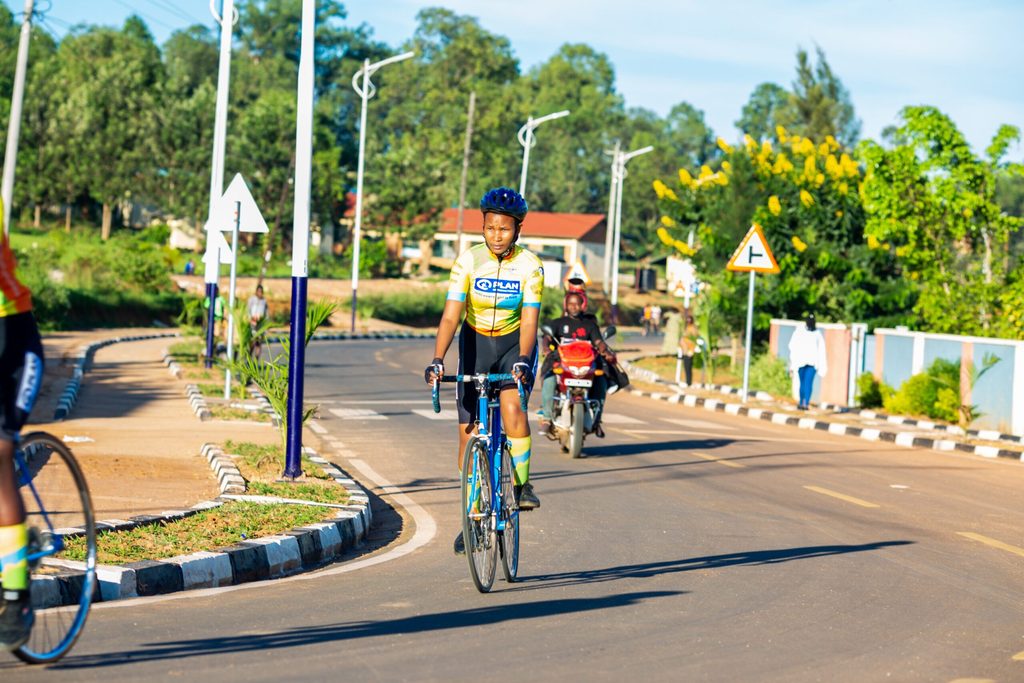
Olivia’s journey began amidst adversity. Orphaned at 14, she found herself shouldering the responsibility of caring for her 4 siblings, including her little sister Joyce, now 18. Facing further challenges, Olivia became a mother at just 15.
Today, alongside Joyce, Olivia is training to be a bicycle mechanic. She is focused on mastering the mechanics and gearing up for professional cycling, accompanied by Joyce, also eager to learn and to become a seasoned cyclist herself.
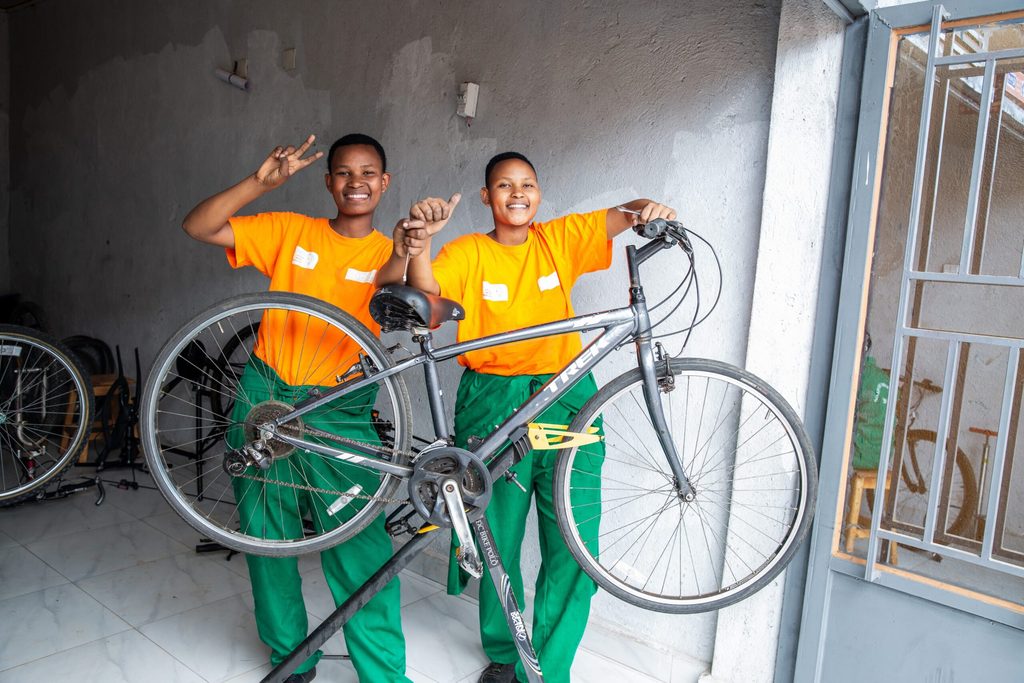
Residing with their old grandmother, Olivia’s brother, Hirwa, 13, steps in to lend a hand with childcare duties while she immerses herself in practical cycling training sessions.
Together, this resilient family finds strength in unity, using cycling and vocational training to chart a course towards personal and economic empowerment, ensuring their family’s welfare.
Reviving hope through sports
For Olivia, being part of the ‘Bike for Future Cycling Team’, has been instrumental in reigniting her sense of purpose and hope. The team is made up of 15 girls and runs practical training twice a week, on Wednesday and Saturday.
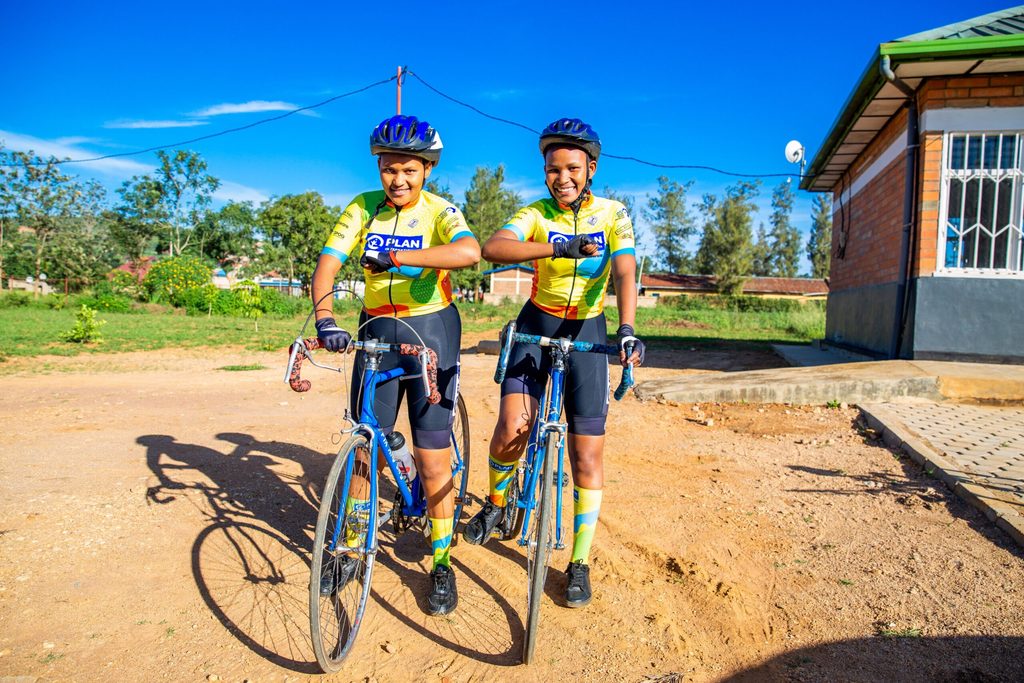
“I aspire to become a professional cyclist. This instills in me the belief that I am capable of achieving my future dreams.”
Olivia, 20
“I aspire to become a professional cyclist. This instills in me the belief that I am capable of achieving my future aspirations,” tells Olivia.
Olivia together with her team, are currently preparing for the World Cycling Championship to take place in 2025 in Rwanda, and use this platform to advocate for girls and women’s rights in deciding for their futures.
Echoing her elder’s sister’s sentiments, Joyce emphasised the importance of sports to empower vulnerable girls, especially orphans.
“As orphans, cycling sports unite us and provide a sense of belonging.”
“As orphans, cycling sports unite us and provide a sense of belonging.”
Joyce, 18
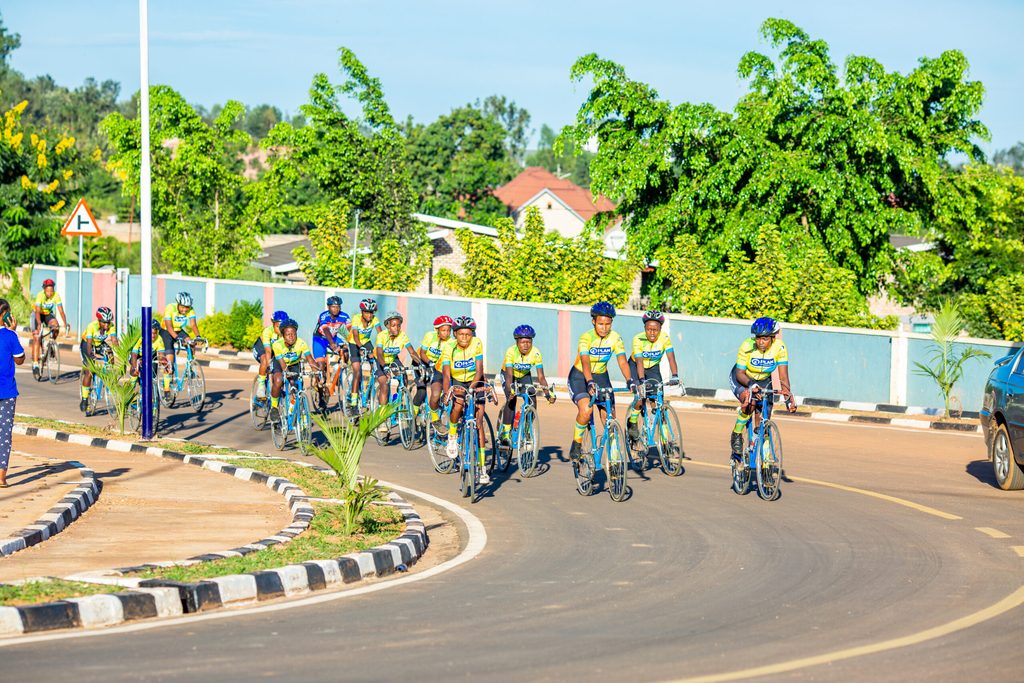
This cycling team’s key goal is to break down gender stereotypes by raising community awareness about the potential of girls, on par with boys within the local community.
Future resilience through vocational skills
In addition to their athletic pursuits, Olivia and Joyce are actively engaged in vocational studies, particularly in bicycle mechanics. Despite Olivia’s early departure from formal education due to motherhood and orphanhood, vocational training has given her assurance to self-sufficiency and a means to secure her family’s future.
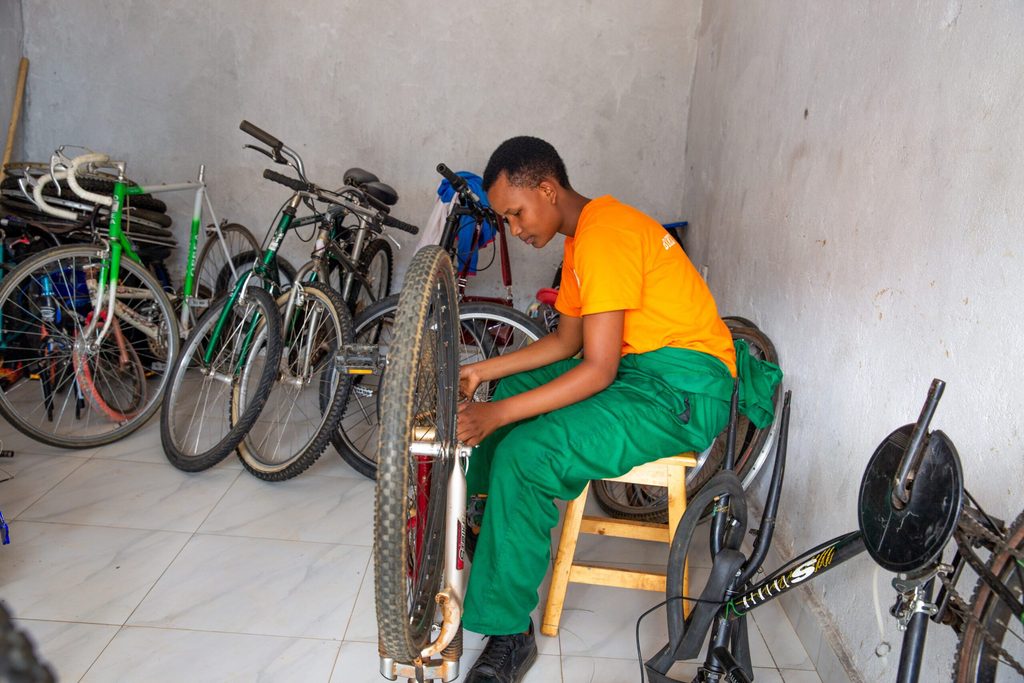
“The opportunity to acquire specialised skills is invaluable. It equips me with the tools to build a better future for myself and my family.”
Olivia, 20
“The opportunity to acquire specialised skills is invaluable. It equips me with the tools to build a better future for myself and my family,” Olivia acknowledges.
Joyce stresses the pivotal role of vocational skills in surmounting the challenges faced by orphaned girls. She also dropped out of school due to poverty.
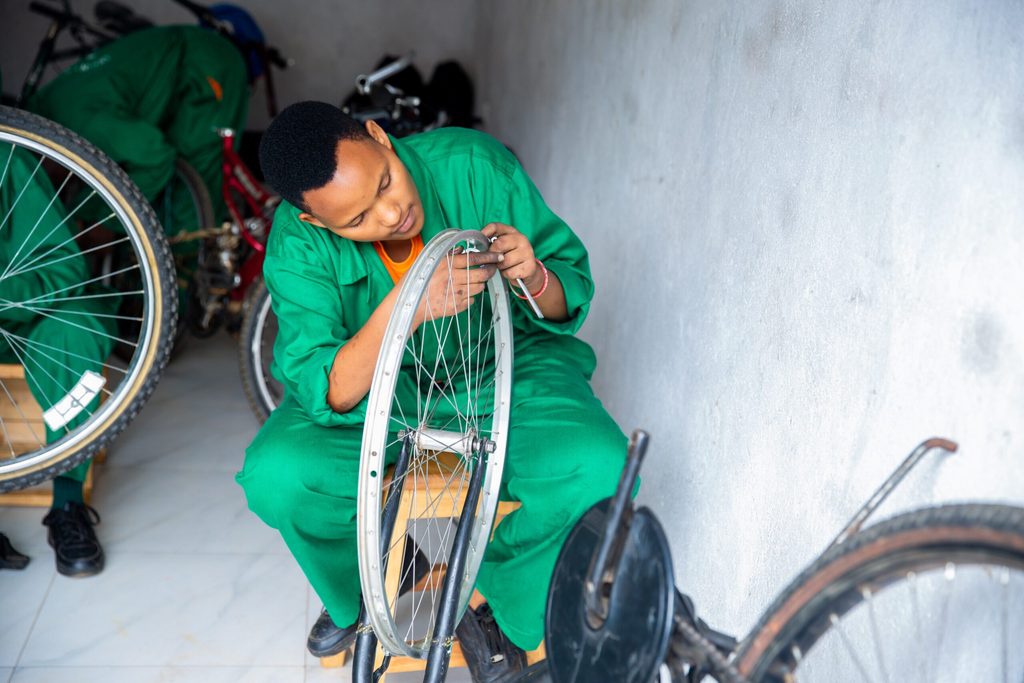
“Armed with vocational skills, we are better equipped to navigate our lives’ uncertainties and fend off vulnerabilities.”
Joyce, 18
“Armed with vocational skills, we are better equipped to navigate our lives’ uncertainties and fend off vulnerabilities,” Joyce says.
The cycling team has a bicycle shop, where they learn their practical bicycle mechanics and sell bicycles to the local communities, each between Rwf 60,000 and Rwf 150,000.
About the project
Olivia and Joyce are participants in the “Bike for Future” project, which places a distinct emphasis on empowering girls and young women.
During its first cohort, the project has welcomed 30 as part of the cycling team. Through the vocational skills, 9 girls are now engaged in welding, 15 girls in bicycle mechanics, 15 in tailoring and 1 girl in information, communication and technology.
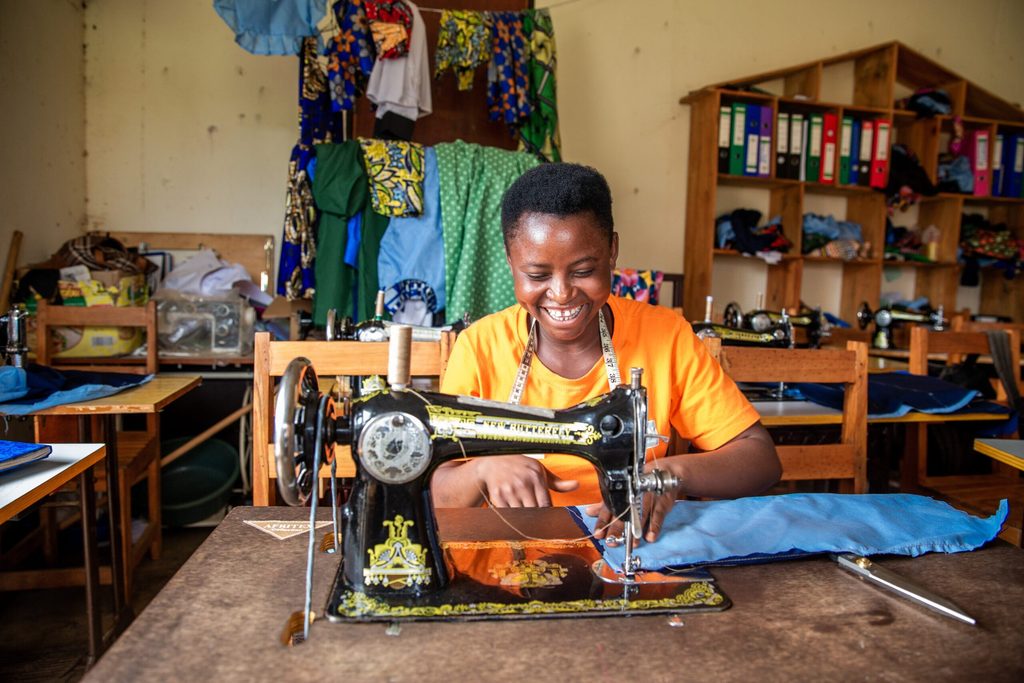
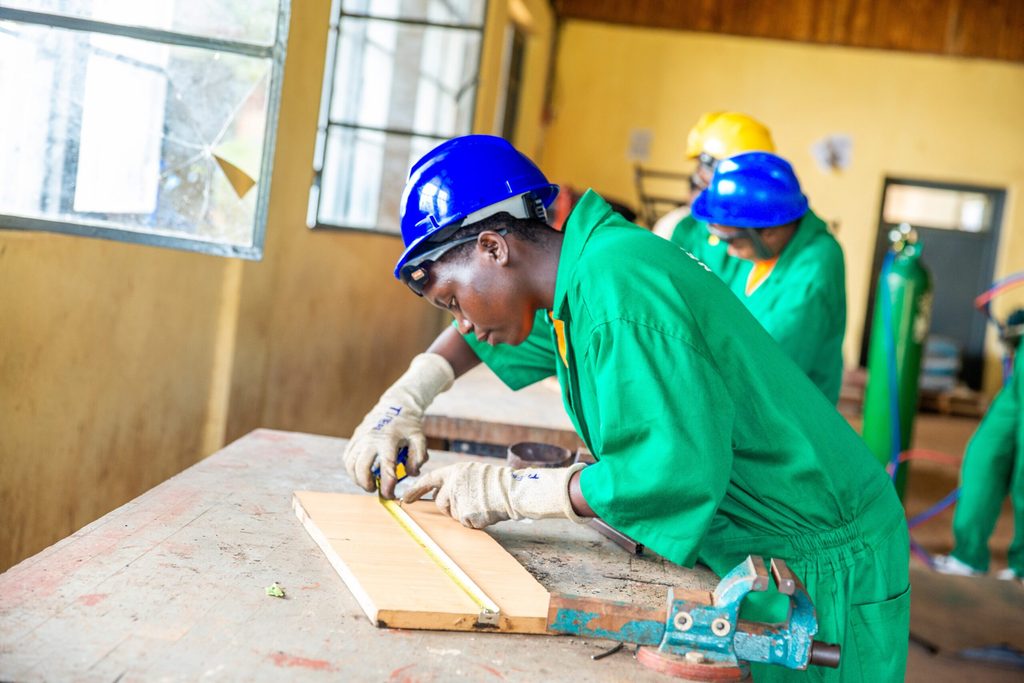
Through 4 pivotal goals, the project will engage 60% girls and 40% boys to achieve economic empowerment through skills training and networks, empower girls and young women through the sports for change approach, challenge gender stereotypes with community support, and secure private sector commitment to engage youth in their respective sectors.
This project is implemented by Learn Work Develop Rwanda and sponsored by Plan International Belgium and Plan International Rwanda, and expands its outreach to the local communities in Gatsibo and Bugesera Districts.
